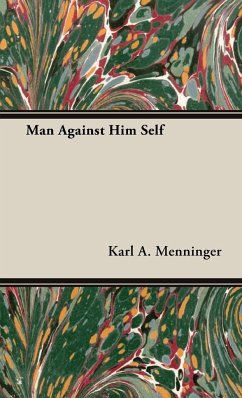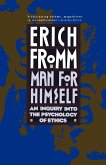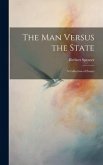MAN against HIMSELF by KARL A. MENNINGER. Preface: IT IS nothing new that the world is full o hate, that men destroy one another, and that our civilization has arisen from the ashes of despoiled peoples and decimated natural resources. But to relate this destructiveness, this evidence of a spiritual malignancy within us, to an instinct, and to correlate this instinct with the beneficent and fruitful instinct associated with love, this was one of the later flowers of the genius of Freud. We have come to see that just as the child must learn to love wisely, so he must learn to hate expedi tiously, to turn destructive tendencies away from himself toward enemies that actually threaten him rather than toward the friendly and the defenseless, the more usual victims of destructive energy. It js true,,, nevertheless, that in the end each man kills himself in his own selected way, nEasf or slow, soon or late. We all feel this, vaguely j there are solHany occasions to witness it before our eyes. The methods are legion and it is these which attract our attention. Some of them interest surgeons, some of them interest lawyers and priests, some of them interest heart specialists, some of them interest sociologists. All of them must interest the man who sees the personality as a totality and medicine as the healing of the nations. I believe that our best defense against self-destructiveness lies in the courageous application of intelligence to human phenom enology. If such is our nature, it were better that we knew it and knew it in all its protean manifestations. To see all forms of self destruction from the standpoint of their dominant principles would seem to be logical progress toward self-preservation and toward a unified view of medical science. This book is an attempt to synthesize and to carry forward, in that direction, the work begun by Ferenczi, Groddeck, Jelliffe, White, Alexander, Simmel, and others who have consistently applied these principles to the understanding of human sickness and all those failures and capitulations that we propose to regard as variant forms of suicide. No one is more aware than I of the un evenness of the evidence to follow and of the speculative nature of some of the theory, but in this I beg the indulgence of the reader to whom I submit that to have a theory, even a false one, is better than to attribute events to pure chance. Chance explanations leave us in the dark a theory will lead to confirmation or rejection. K. A. M.
Hinweis: Dieser Artikel kann nur an eine deutsche Lieferadresse ausgeliefert werden.
Hinweis: Dieser Artikel kann nur an eine deutsche Lieferadresse ausgeliefert werden.








